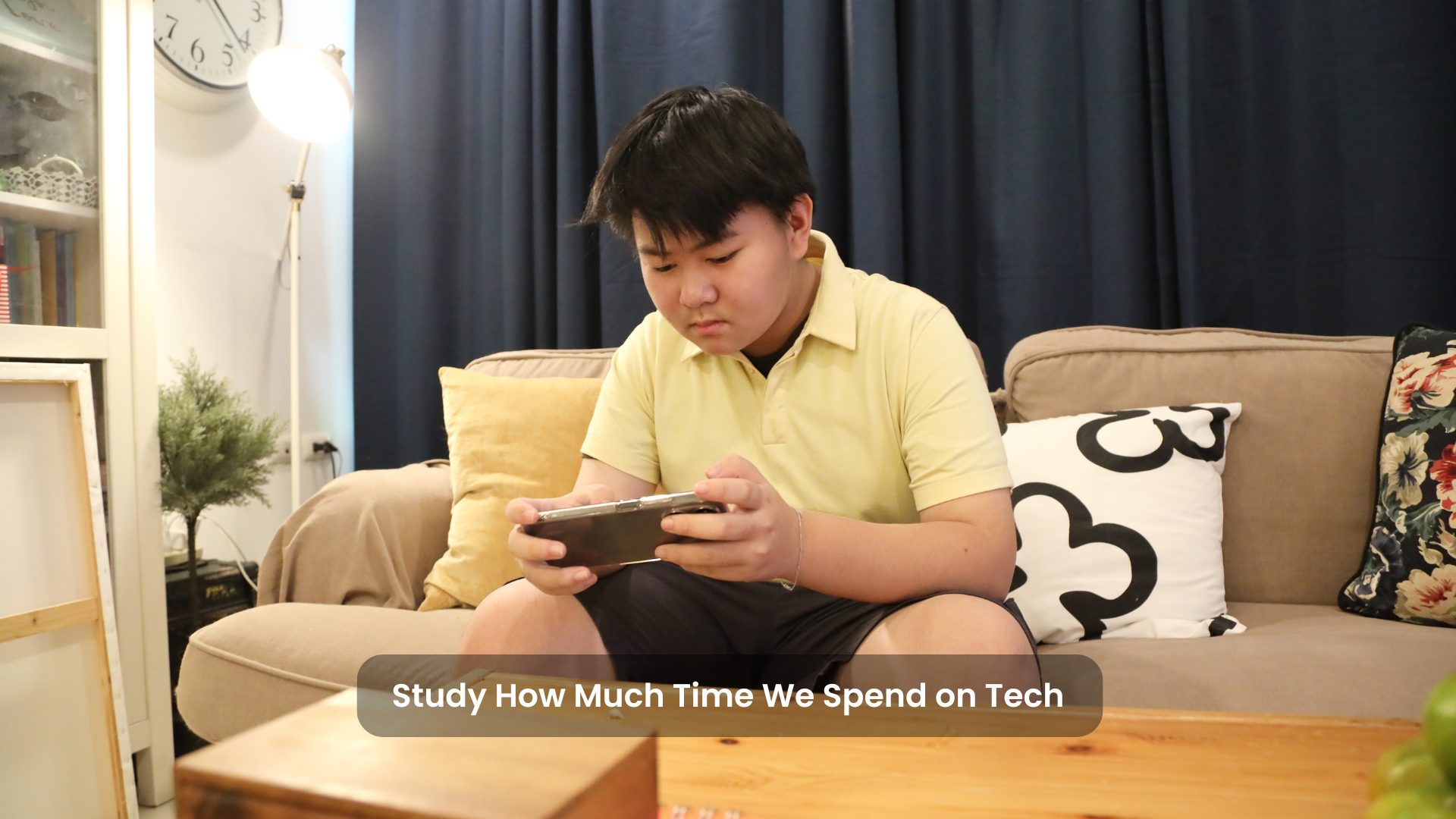Introduction: The Growing Influence of Technology in Our Lives
In today’s digital era, technology is essential in nearly every aspect of our lives. From communicating with friends and family to managing our finances, work, and entertainment, tech is always around. But have you ever wondered how much time we spend interacting with our gadgets? Research and studies have shown staggering numbers that may make you rethink your tech habits.
In this blog, we’ll dive into the results of studies that explore how much time we spend on tech, uncover trends, and how this shift has impacted our daily routines, well-being, and society.
The Digital Age: A Tech-Driven Society
It’s no secret that we live in a tech-driven world. From smartphones to laptops and tablets, technology is constantly at our fingertips. But this convenience comes at a cost. Technology has seeped into every corner of our existence, changing how we live, work, and connect with others.
The Rise of Smartphones
Smartphones are the biggest culprit in the surge of tech use. They serve as mini-computers, allowing us to connect with the world at any time and place. According to a report by eMarketer, the average person spends about 3.5 hours a day on their smartphone, checking apps, social media, emails, and browsing the internet.
This number has grown exponentially over the past decade.
Other Tech Devices and Platforms
It’s not just smartphones. Laptops, smartwatches, and other devices are now integral to daily life. Whether for work, leisure, or productivity, tech is a consistent companion.
How Much Time Do We Spend on Tech?
Recent studies have offered a clear picture of how much time we devote to technology daily. Let’s break it down:
Screen Time Statistics
The average American spends roughly 10 hours daily in front of a screen. This includes time spent on smartphones, tablets, computers, and televisions. The breakdown looks something like this:
- Smartphones: 3.5 hours
- TV/Streaming Services: 4 hours
- Computer/Laptops: 2.5 hours
These numbers are eye-opening, especially considering that the average adult only sleeps 7-8 hours each night. Tech consumption takes up a considerable portion of our waking hours.
The Role of Social Media in Our Tech Consumption
One of the biggest drivers of screen time is social media. Platforms like Facebook, Instagram, TikTok, and Twitter keep us glued to our screens, scrolling for hours. Research shows that the average person spends approximately 2 hours daily on social media.
The Addictive Nature of Social Media
Social media platforms have become so addictive that we check them automatically, whether during lunch breaks, waiting in line, or even before sleep. Notifications, likes, and comments all trigger a dopamine release, reinforcing the behavior and creating a cycle of constant engagement.
Impact of Technology on Our Productivity
While technology has certainly improved productivity for many, there’s a fine line between using it to enhance our work and using it in a way that leads to distractions.
The Productivity Paradox
Many workers today report feeling overwhelmed by the constant bombardment of emails, notifications, and alerts. A study by RescueTime found that employees spend an average of 3 hours per day distracted by non-work-related activities on their computers, such as social media, entertainment, or online shopping.
This brings up the question: is technology helping or hindering our productivity?
Health Implications of Excessive Tech Use
Extended use of technology, especially screen time, can have profound health implications. From eye strain to poor posture, the effects of tech overload are becoming more apparent.
Physical Effects of Tech Overuse
- Eye Strain: Prolonged screen exposure can lead to digital eye strain, causing headaches, blurry vision, and dry eyes.
- Sleep Disruption: Blue light emitted by screens can interfere with the production of melatonin, the hormone that regulates sleep, making it harder to fall asleep.
- Posture Problems: Long hours hunched over screens can lead to back, neck, and shoulder pain, contributing to chronic discomfort.
Mental Health Concerns
Beyond physical issues, excessive screen time can have a profound impact on mental health. Anxiety, depression, and stress are linked to tech addiction, with social media being a major contributor.
How Tech Affects Relationships and Social Interactions
With tech becoming a constant part of our lives, it’s no surprise that it has also affected our relationships. Here are a few ways tech impacts human interaction:
The Impact on Face-to-Face Communication
As we spend more time on our devices, we may spend less time interacting with people in person. This shift can lead to feelings of isolation and loneliness despite being constantly connected online.
The Rise of Virtual Connections
Conversely, tech has allowed people to form relationships with others worldwide, something that wouldn’t have been possible in previous generations. However, the question remains: Are these online connections as meaningful as face-to-face interactions?
The Future of Tech and Our Habits
As technology continues to evolve, so will our habits. Will we continue spending more time on our devices or begin to unplug and regain balance?
Trends to Watch Out For
- Artificial Intelligence: AI will likely play an even bigger role in our daily lives, automating many tasks and making us more dependent on technology.
- Virtual Reality (VR) and Augmented Reality (AR): These immersive technologies could further blur the line between the real and virtual world, influencing everything from work to entertainment.
- Tech Detox: As awareness grows about the adverse effects of tech addiction, more people are seeking ways to disconnect. Tech detoxes, digital detox retreats, and mindfulness practices are gaining popularity.
Conclusion: Striking a Balance
Technology has undoubtedly revolutionized the way we live and work. But as we’ve seen, it’s essential to take a step back and reflect on how much time we spend on our devices. While tech offers countless benefits, setting boundaries and prioritizing our well-being is necessary.
Finding a balance between embracing the digital world and maintaining a healthy relationship with it will ensure that technology enhances, rather than hinders, our lives.
FAQs
- How much time should I spend on technology each day?
- Experts recommend limiting screen time to 2-3 hours daily, especially for non-work-related activities.
- Can excessive tech use lead to addiction?
- Yes, technology addiction is real and can lead to dependency, anxiety, and even depression if not managed properly.
- How can I reduce my screen time?
- Set daily time limits, schedule tech-free hours, and practice mindfulness to regain control over your screen time.
- What are the benefits of a digital detox?
- A digital detox can help reduce stress, improve sleep, and foster meaningful in-person interactions.
- How can I use tech to improve productivity without getting distracted?
- Use productivity tools, set clear goals, and limit distractions by turning off notifications during work hours.
Please don’t forget to leave a review.

